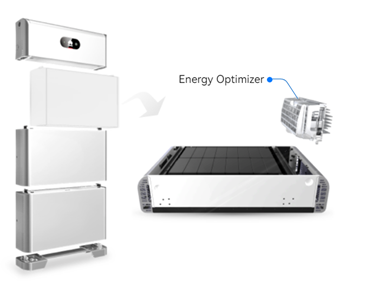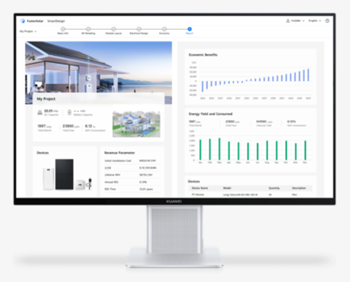In the ever-evolving landscape of energy solutions, the clash between traditional power sources and renewable alternatives is more prominent than ever. One of the battlegrounds in this energy revolution is the competition between sun solar inverters and their traditional counterparts. In this head-to-head comparison, we'll dissect the key differences, advantages, and transformative potential that sun solar inverters bring to the table.
Understanding the Basics
Before diving into the comparison, let's establish the fundamentals. Inverters, in general, play a crucial role in converting the type of electricity used in our homes. Traditional inverters, commonly found in conventional power setups, convert direct current (DC) from sources like generators or the grid into alternating current (AC) for household appliances. On the other hand, sun solar inverters specifically cater to the needs of solar power systems, converting DC generated by solar panels into AC.

Sun vs. Conventional
Energy Source
The most fundamental difference lies in the energy source. Traditional inverters rely on electricity from the grid or conventional generators, often powered by fossil fuels. In contrast, sun solar inverters harness the inexhaustible power of the sun, converting solar energy into electricity. This distinction marks a pivotal shift towards sustainability and reduced dependence on finite resources.
Environmental Impact
One of the primary advantages of sun solar inverters is their significantly lower environmental impact. Traditional power sources contribute to air and water pollution, deforestation, and the emission of greenhouse gases. Sun solar inverters, being part of a renewable energy system, produce clean electricity without harmful emissions, making them a key player in the global effort to combat climate change.
Cost Considerations
Historically, one of the challenges hindering the widespread adoption of solar power systems has been the initial setup cost. However, advancements in technology and increased demand have led to a notable reduction in the cost of solar components, including inverters. While the initial investment for sun solar inverters may still be higher than traditional inverters, the long-term operational cost is considerably lower, making them a cost-effective and economically viable choice.
Energy Independence
Sun solar inverters contribute to the goal of energy independence. Homes and businesses equipped with solar power systems, backed by efficient solar inverters, can generate a significant portion of their electricity needs on-site. This reduces reliance on external power sources, leading to increased resilience during grid outages and contributing to a more robust and decentralized energy infrastructure.

Innovation in Technology
Sun solar inverters are at the forefront of technological innovation in the energy sector. With advancements such as maximum power point tracking (MPPT) algorithms and smart grid integration, these inverters enhance the overall performance and efficiency of solar power systems. Traditional inverters, while reliable, may lack the sophisticated features that contribute to optimal energy conversion and management.
Scalability and Versatility
The solar energy solutions offer scalability, allowing users to start with a small solar power system and expand as needed. This scalability is particularly beneficial for residential users who can gradually increase their solar capacity based on energy consumption patterns. Traditional inverters, designed for conventional power sources, may lack this flexibility.
The Path Forward
In the clash between sun solar inverters and traditional inverters, it's clear that the former holds a distinct advantage in terms of sustainability, environmental impact, and long-term cost-effectiveness. As technology continues to advance and economies of scale drive down the cost of solar solutions, the shift towards sun solar inverters is likely to accelerate, paving the way for a cleaner and more sustainable energy future.
Conclusion
In conclusion, the head-to-head comparison between sun solar inverters and traditional inverters reveals a clear winner in the quest for a sustainable and resilient energy landscape. While traditional inverters have served us well, the transformative potential of sun solar inverters positions them as the frontrunners in the ongoing energy revolution, offering a cleaner, greener, and more independent energy solution for homes and businesses alike.
